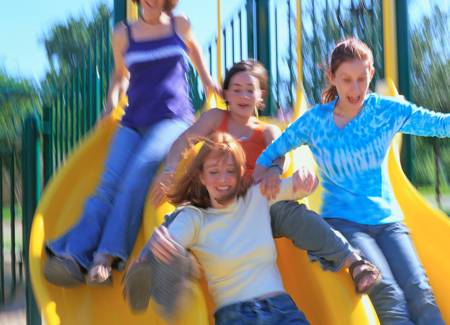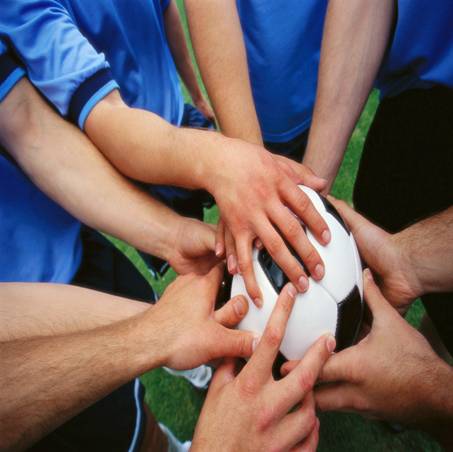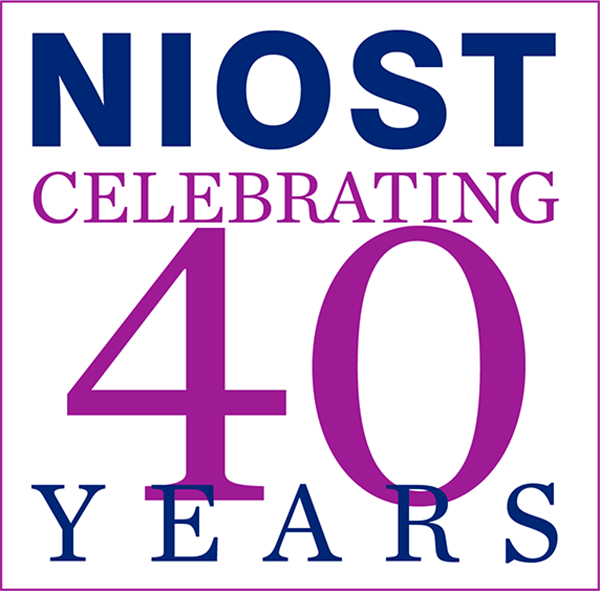Georgia Hall Projects
Georgia Hall
Afterschool Matters
Attleboro Public Schools Afterschool Programs/Balfour Foundation Technical Assistance Project
BOKS Longitudinal Evaluation
After-School Gets Moving
Be Safe Initiative
From Out-of-School to Outer Space: Exploring the Solar System with NASA
An Evaluation of Out of Harm's Way
CityWorks: Building Strong Citywide Afterschool InitiativesCityWorks: Building Strong Citywide Afterschool Initiatives
Completed in 2004
Project Directors: Georgia Hall, Ph.D., Brooke Harvey, B.A.
Funders: Charles Stewart Mott Foundation, National Institute on Out-of-School TimeCityWorks was an initiative of the National Institute on Out-of-School Time (NIOST) working in collaboration with existing communities that provide high quality out-of-school time programming to youth and children. CityWorks aimed to build on the successful foundation of the "Cross-Cities Network for Leaders of Citywide After-School Initiatives" (CCN), which brings together leaders of after-school initiatives from 21 major cities across the United States.
Through CityWorks, NIOST investigated the development of infrastructures that supported sustainable quality program outcomes, and through dissemination of Promising Practices improved the availability and preservation of out-of-school time programming. Cityworks also collaborated with the National League of Cities Institute for Youth, Education and Families to provide technical assistance to more cities and to provide Network members with technical assistance on working with city officials to further their initiatives.
Activities
In bringing the experiences of stakeholders, service providers, schools, and community organizations together, NIOST learned and shared strategies for strengthening the infrastructure for out-of-school time activity including improving methods for recruiting and training providers, program development, establishing accountability/evaluation systems, and developing and sustaining financial support. By sharing best practices of the CCN, CityWorks sought to strengthen and enhance citywide after-school initiatives and the communities they serve.
The five major activities that CityWorks undertook were:
- Identify Promising Practices related to systems-building and infrastructure development,
- Collaborate with Institute for Youth, Education and Families (IYEF) of the National League of Cities,
- Host a meeting the second year of the grant period for network members,
- Facilitate a continuous communication stream through an active e-mail discussion group,
- Provide published and web-based information to support the dissemination of Promising Practices including four topical briefs that spotlight new ideas and trends.
Products
There were four projected products from this collaborative: (1) a report describing the process of identifying, collecting, and evaluating and documenting Promising Practices related to systems-building and infrastructure development; (2) four issues of "After School Issues" researched, written, designed, and published by NIOST; (3) a "Meeting Notebook" which contains meeting logistics, supporting readings and documentation, and other technical assistance materials; and (4) technical assistance such as presentations, coaching, and facilitating a community vision or goal development process. The audience for these products will be members of CCN, policy makers, intermediary organizations, and practitioners.
Expected Outcomes
There are multiple benefits from this project. CityWorks will allow communities to have a full range of practices to learn from — relating to program, community and systems-building, and infrastructure development. Increases in the capacity of key leaders, including increased knowledge, access to information, and shared development of new approaches to implementing large after-school initiatives will result in increased effectiveness of the citywide initiatives. The influence of the leaders, the new strategies, and exploration of Promising Practices will lead to changes in the field, including new models, paradigms, and integrated visions.
Through the collaboration with IYEF, the expertise and experience gained will be extended to a broader network of municipal leaders who will gain a deeper understanding of the challenges facing large scale citywide after-school initiatives. Ultimately, CityWorks will create a more knowledgeable and effective national community of leaders, enabling communities to create and sustain responsive and effective out-of-school time systems that positively impact children and families.
The project was funded by the Charles Stewart Mott Foundation .
Met Life Discovering Community Initiative: An Evaluation ProjectMet Life Discovering Community Initiative: An Evaluation Project
Completed in 2006
Project Directors: NIOST, Georgia Hall, Ph.D.
NIOST served as the evaluator for the Discovering Community Initiative, a project of The After School Corporation (TASC). The Met Life Foundation awarded TASC a grant to administer a national project that fosters more positive attitudes and stronger affiliations among teachers, students, and parents within school communities.The goal of the initiative was to give middle school students, their teachers, and families the resources to strengthen and celebrate their communities and help teachers better understand and appreciate the students and parents that comprise the community in which they teach.
The initiative was carried out through school based afterschool programs in six areas: Baltimore, MD, Boston, MA, Rhode Island, Queens, NY, Utica, NY, and Pinellas County, FL. NIOST managed and oversaw the research and evaluation component, including the creation and dissemination of issue briefs, activity tipsheets, etc., that were shared with a broad spectrum of afterschool program leaders.
Cross-Cities Network
Framingham Public Schools
New York City Urban Debate League: Investigating Youth's Experiences...New York City Urban Debate League: Investigating Youth's Experiences in a "Democracy in Action" Afterschool Program
Completed in 2006
Project Director: Georgia Hall, Ph.D.
This research project investigated the approach and activities of the New York City Urban Debate League (NYCUDL) and commented on how youth, through participation in these leagues, develop democracy skills and experiences that can affect personal change. Urban debate leagues organized interscholastic debate as an academic competition and promote debate as a valuable learning tool. This research study:
-
described the components of the debate program
-
profiled the youth and adult participants
-
provided an analysis of the “debate” approach and activities as an example of "democracy in action"
-
presented an exploration of the experiences of and impacts on participating youth
- investigated the infrastructure that supports the delivery of urban debate activities
There is a good amount of literature describing the elements of debate and how skills developed in debate may transfer to other endeavors — such as creating a stronger foundation for academic achievement, etc. The purpose of this study was to look deeper into how youth actually experience the democratic ideals and skills that form the foundation of a debate program, and in what ways those experiences influence the youth's understanding of, participation in, and consideration of democracy.
-
Outcomes Evaluation of FasTracKids
Physical Activity Over Time: Health Outcomes of Elementary School Children
Program Practices: An Investigation of Physical Activity and Healthy Eating Standards and PracticesProgram Practices: An Investigation of
Physical Activity and Healthy Eating Standards
and Practices in Out-of-School Time ProgramsCompleted in 2011
Principal Investigator: Georgia Hall, Ph.D.
Co-Principal Investigator: Jean Wiecha, Ph.D.
Team Members: Georgia Hall, Ph.D., Jean Wiecha, Ph.D. (University of Massachusetts), Ellen Gannett, M.Ed., Barbara Roth (YMCA of the USA), Julie Dennehy, M.M., Diane Gruber, M.A.Background
 Energy balance and appropriate physical activity are critical to preventing obesity and associated cardiometabolic morbidity. In the United States, 6.5 million children attend out-of-school time programs annually, participating in roughly 3 hours per day of activities typically including homework, snack, and gross motor play. If out-of-school time programs can provide appropriate snack and physical activity choices, they can be an important component of the campaign against childhood obesity. There is a window of opportunity to infuse more rigorous content and provide guidance and language in the National Afterschool Association standards for physical activity and healthy eating.
Energy balance and appropriate physical activity are critical to preventing obesity and associated cardiometabolic morbidity. In the United States, 6.5 million children attend out-of-school time programs annually, participating in roughly 3 hours per day of activities typically including homework, snack, and gross motor play. If out-of-school time programs can provide appropriate snack and physical activity choices, they can be an important component of the campaign against childhood obesity. There is a window of opportunity to infuse more rigorous content and provide guidance and language in the National Afterschool Association standards for physical activity and healthy eating.Specific Aims
- To build capacity for childhood obesity prevention in OST by infusing rigorous science-based standards and guidelines into NAA standards for physical activity and healthy eating
- Identify current physical activity and healthy eating standards used in a targeted national sample of OST programs
- Identify current program practices in these areas
- Identify statistically significant associations between best practices and program characteristics, components, and social contextual variables
- Disseminate information on effective implementation of high quality standards, through a comprehensive report, study briefs, and presentations at national conferences.
- Lay the groundwork for a subsequent Phase 2 project to re-assess the program cohort and develop a tool kit to help all OST programs implement the rigorous science-based standards for physical activity and healthy eating.
Methods
 This is a mixed-methods research study using a sequence of quantitative and qualitative data collection methods and multiple regression modeling to examine program characteristics associated with providing healthy eating and physical activity opportunities in a national sample of out-of-school time programs. Effective practice will be operationalized through the application of a field-tested research-based survey reflecting current standards and guidelines established through expert sources such as the Center for Disease Control and Prevention and the National Academy of Science - Institute of Medicine. Data will be collected in ten regions representing a mix of geographic locations, urban/suburban/rural communities, school district sizes, and variety of out-of-school time programs. The sampling frame will be comprised of programs with diverse demographic school district profiles and large percentage of students eligible for free/reduced lunch. The survey sample will include 80-100 programs within each region (500+ total) and Exemplary Program Observations at 30 of these programs.
This is a mixed-methods research study using a sequence of quantitative and qualitative data collection methods and multiple regression modeling to examine program characteristics associated with providing healthy eating and physical activity opportunities in a national sample of out-of-school time programs. Effective practice will be operationalized through the application of a field-tested research-based survey reflecting current standards and guidelines established through expert sources such as the Center for Disease Control and Prevention and the National Academy of Science - Institute of Medicine. Data will be collected in ten regions representing a mix of geographic locations, urban/suburban/rural communities, school district sizes, and variety of out-of-school time programs. The sampling frame will be comprised of programs with diverse demographic school district profiles and large percentage of students eligible for free/reduced lunch. The survey sample will include 80-100 programs within each region (500+ total) and Exemplary Program Observations at 30 of these programs.
Healthy Out-of-School Time: Related Resources (HOST)
Massachusetts Afterschool Research Study (MARS)Massachusetts Afterschool Research Study (MARS)
Completed in 2005
Project Director: Joyce Shortt
The Massachusetts Afterschool Research Study (MARS) is a statewide study examining the links between afterschool program quality and student outcomes, and the efficacy of various models of afterschool for youth. United Way of Massachusetts Bay is collaborating with the Massachusetts Department of Education and the Massachusetts Office of Child Care Services to manage the study, which will be conducted by the National Institute on Out-of-School Time (NIOST) at the Wellesley Centers for Women, Wellesley College, in partnership with the Intercultural Center for Research in Education (INCRE).
MARS aims to create consensus around the elements of program quality, features, and participation that contribute to positive outcomes for youth, so that funders, providers, advocates, and policy-makers are better prepared to expand the quality and availability of afterschool programs. Public and private funders will have the information they need to focus resources on effective program elements; providers will be able to make ongoing quality improvements; and policy-makers will have a reliable foundation on which to base their commitment to afterschool.



